seam collective Textile Talks: Textiles, sustainability and collaboration

We are delighted to share more details of the Programme, Speakers and Talks at seam collective Textile Talks in October.
You can buy tickets for the event here
Programme
| 9:30 am | Refreshments | |
| 10:00 am | Introduction | Judith van den Boom |
| 10:15 am | Talk 1 | Paula Orrell The role of the visual arts as vital cultural infrastructure and as a driver of social and economic growth |
| 11:00 am | Break | Refreshments |
| 11:30 am | Talk 2 | Judith van den Boom Warped and Wasted: A Collective Process to Practice Life |
| 12:15 pm | Lunch – 1.5hrs | Lunch not included. Opportunity to visit the Warped and Wasted exhibition |
| 1:45 pm | Talk 3 | Helen Carnac with seam members Alice-Marie Archer, Oliver Bliss, Nina Gronw–Lewis, Angie Parker, and Nicola Turner Warped and Wasted in-conversation |
| 2:30 pm | Break | Refreshments |
| 3:00 pm | Talk 4 | Becky Earley |
| 3:45 pm | Conclusion | Judith van den Boom |
| 4:00 pm | Opportunity to visit the Warped and Wasted exhibition |
To reduce the cost of tickets, lunch is not included in the ticket price. You are welcome to bring a packed lunch or support one of the many lovely local businesses in Somerton. Refreshments will include teas, coffees and water.
Speakers
Judith van den Boom
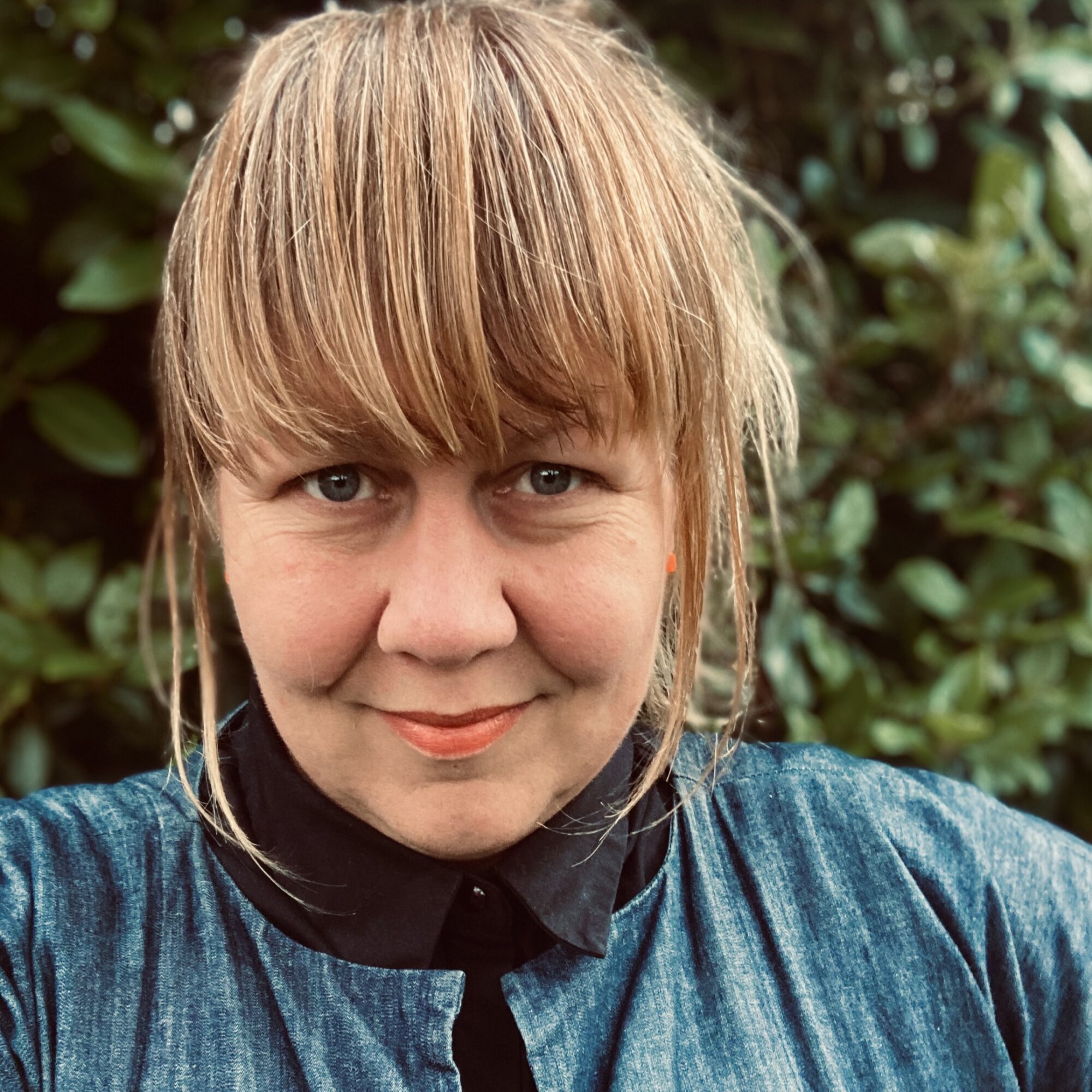
With over 15 years of international expertise, Judith is an avid lecturer and consultant, collaborating with partners globally. She holds an MA from the Royal College of Art and is pursuing a PhD at Manchester Metropolitan University, developing regenerative relational frameworks to deepen ecology and design alliances. Judith co-founded UFƟ Unidentified Facility, a research group to explore future ecologies and experimental processes. Her earlier design work as studio BoomWehmeyer was grounded in hands-on processes, reimagining making as dialogue and extensively exhibited in Europe and Asia. For Judith craft is about much more than the process and material to achieve an outcome. Rather, it is a tool for presence, awareness and exploring relationships in ways that help to transcend to a richer sense of self, a new sense of connectedness, with others, and more sustainable ways of living.
Website: csmregenerativedesign.com
www.unidentifiedfacility.org
Linked in: linkedin.com/in/judithboomwehmeyer
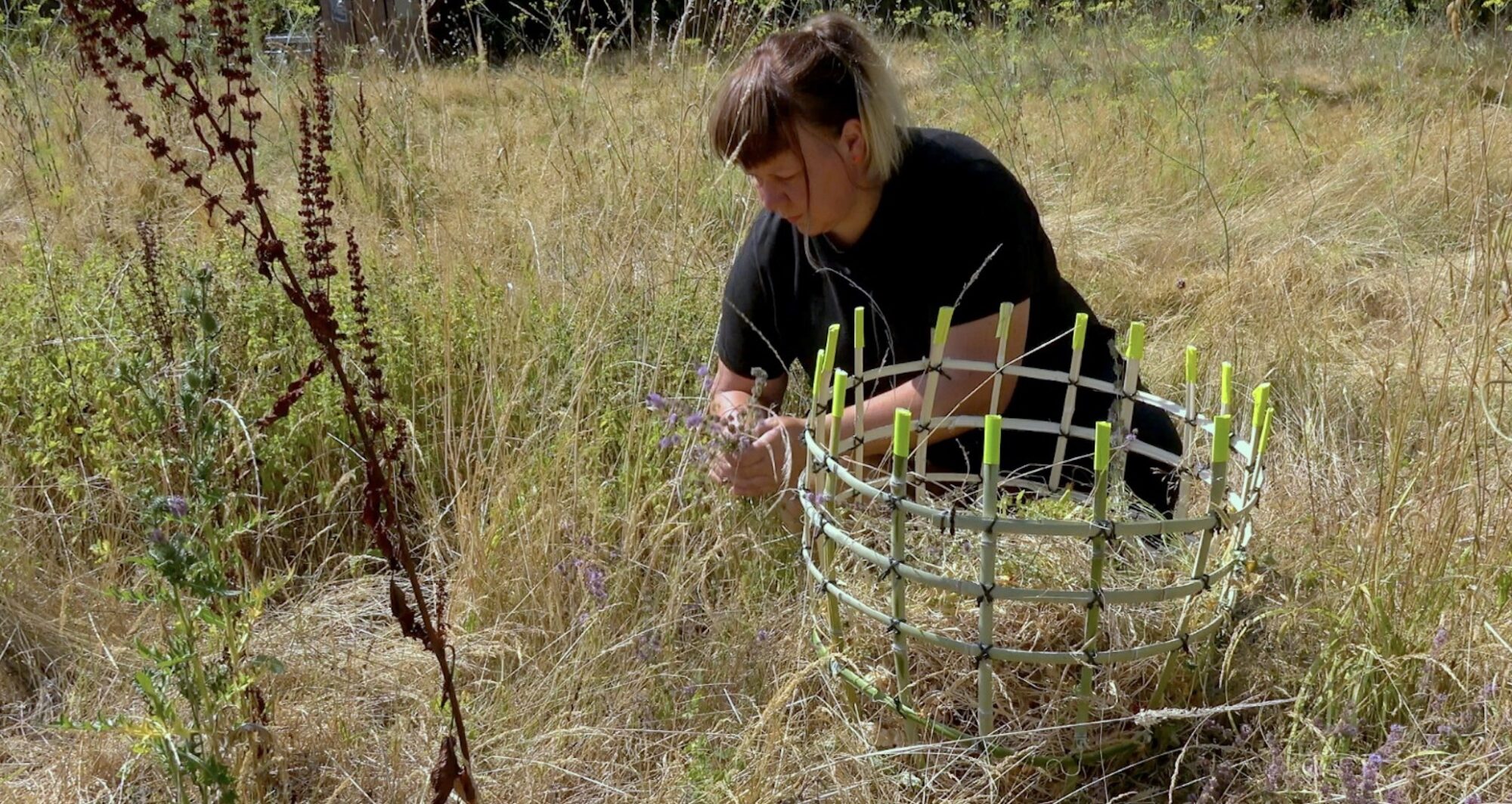
Talk 2 – 11.30am
Warped and Wasted: A Collective Process to Practice Life, explores how we can understand sustainability not as a passive concept, but as an active, living learning practice that is relational, collective, and integrated with environmental care. Drawing on the process of seam collective, we’ll unpack how sustainability is more than a material concern. It connects diversity, locality, cycles, and care.
We’ll explore how working collectively, learning from, and designing for nature can guide us to new knowledge, applications, and ways of seeing, ultimately helping us restore and reimagine our relationships with the world. Central to this has been a collaborative learning journey of Warped and Wasted: experimenting together, sharing skills and perspectives, questioning assumptions, and holding space for discussion. Through workshops, hands-on making, explorations, and collective modes of working, seam has co-developed its response to becoming sustainable in both ecological and social contexts. This process, with all its uncertainties, tensions, and translations, has been pivotal to frame sustainability as practice and process.
How does sustainability feel in a collective process? How do we engage place as partner? How do we show and embody this through our work and daily actions? This talk invites us to rethink how we are community, as artistic practice, as interconnected network, and as part of a living planet.
Paula Orrell
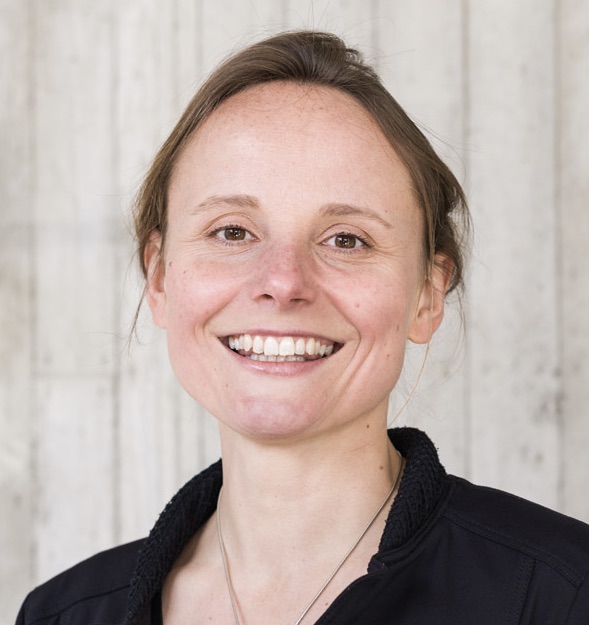
Paula Orrell is the National Director of CVAN England (Contemporary Visual Arts Network), a role through which she leads national policy advocacy, sector support, and equity programmes for the visual arts. With a background in curating and arts leadership in both the UK and New Zealand, she has directed institutions including CoCA Toi Moroki in Christchurch and Plymouth Arts Centre, and led major public art initiatives such as the River Tamar Project. Paula is the Chair of the Coventry Biennial. She has played a central role in advancing fair working conditions, investing in artists, and recognising the visual arts within national growth strategies. She is committed to reshaping the visual arts ecosystem to be more equitable, sustainable, and valued as a critical part of the UK’s creative economy.
Website: cvan.art
Instagram: @paula.orrell.curator
LinkedIn: linkedin.com/in/paulaorrell
Paula will speak on the role of the visual arts as vital cultural infrastructure and as a driver of social and economic growth. Drawing on her leadership of CVAN and national advocacy work, she will explore how visual arts, including textiles, contribute to health, innovation, and place-making, and why long-term investment and policy reform are crucial. Her contribution will spotlight current challenges — including precarity, underfunding, and lack of representation — while offering a roadmap for building a more resilient and inclusive ecosystem. Paula will also explore how artists and arts organisations can shape policy and influence structural change.
Helen Carnac
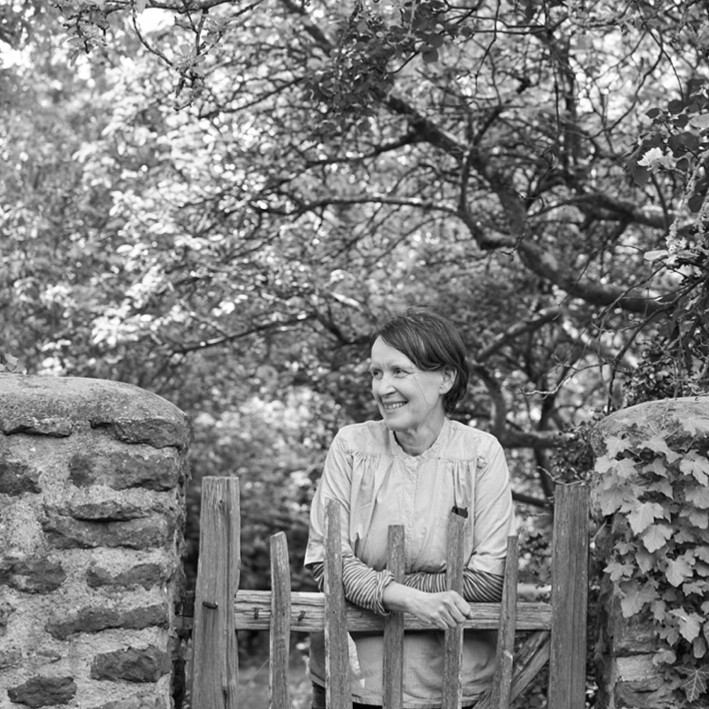
Helen Carnac is an artist and maker who lives and works in West Somerset, UK. Setting up her studio in the early 1990s in London, Helen has since developed many projects and works using methodologies that are rooted in an acute awareness of physical location, place and working practices. Helen has been critically engaged in why and how we make things throughout her career and has taught and developed courses in university settings for over 25 years.
In 2009 she curated the highly regarded exhibition Taking Time: Craft and the Slow Revolution, which toured eight national venues and museums and was an early exploration of how making processes can be linked to ideas of provenance, sustainability and the Slow movement. These ideas are still key to how she develops and makes her work. Now living in a rural context, her working week is interspersed with looking after, her and her partner’s (artist David Gates), small holding, where in an attempt to encourage more nature friendly habitats, they have planted over 700 native trees, several natural meadows and are renovating a 17th Century farmhouse.
Her work is held in several collections including V&A, London (UK), Enamel Art Foundation, (USA), Rotasa Foundation, (USA), RAM (USA) and Montreal Museum of Fine Arts (Canada).
Website: Helencarnac.co.uk
Instagram: @HelenCarnac
Warped and Wasted in-conversation, during this question-and-answer conversational session, Helen and seam collective members will reflect on how the group’s approach to textiles, art, sustainability and collaboration has developed during the development of the Warped and Wasted project. We will discuss how the collective members have engaged with a range of subjects during meetings and making processes, touching on some of the challenges they have faced during the process and how they have overcome them.
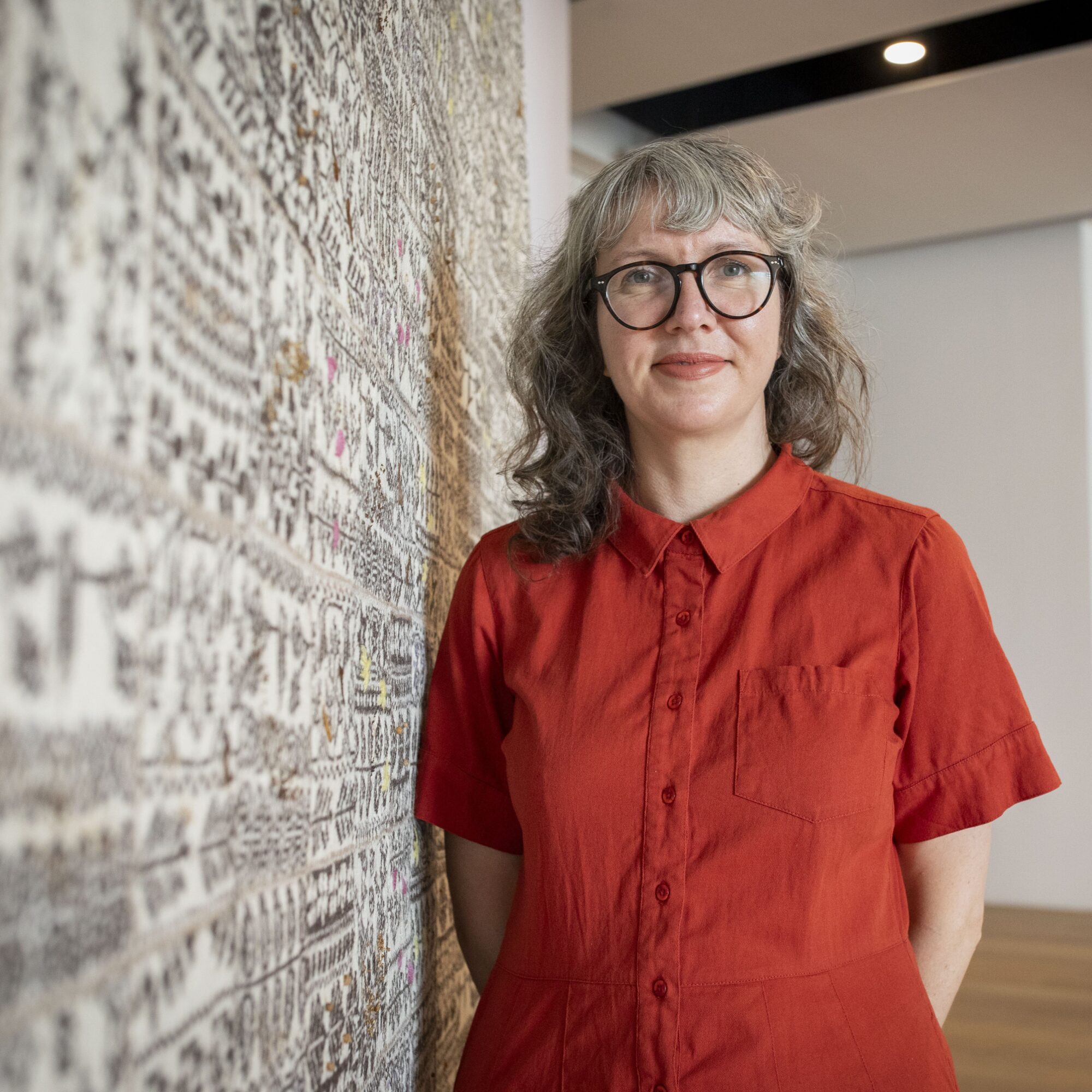
Alice-Marie Archer
Alice-Marie Archer’s practice is a craft-led exploration of our entangled relationships with
From meditations on soil restoration to living installations embedded with seeds, fungi, and bacteria her work invites a regenerative dialogue between species. Recent commissions for the Benton Museum of Art and V&A Dundee reflect her commitment to place-based ecological care and community collaboration.
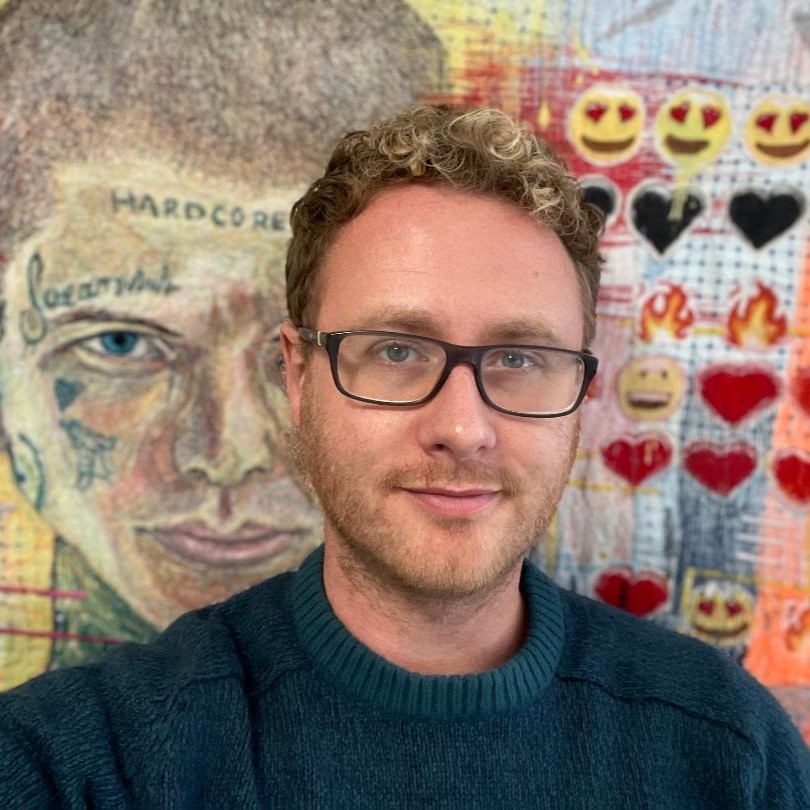
Oliver Bliss
Oliver Bliss is a contemporary artist using textiles to explore identity, sexuality, and gender. He is currently exhibiting in Made in the Middle with Craftspace. His previous project Soft Lads features large-scale tapestries inspired by male tattoo culture on Instagram, exploring masculinity and self-image.
Oliver has led community projects including History in the Making with Worcester Archives and Watermark Showcase with Meadow Arts. His Same-Sex Marriage Quilt celebrated MPs who voted for marriage equality. He also designs Pride banners, facilitates creative workshops, and provides mentoring and training with groups such as Behind the Smile, Craftspace, and Castlefield Gallery.
Website: oliverbliss.blogspot.com
Instagram: @olybliss
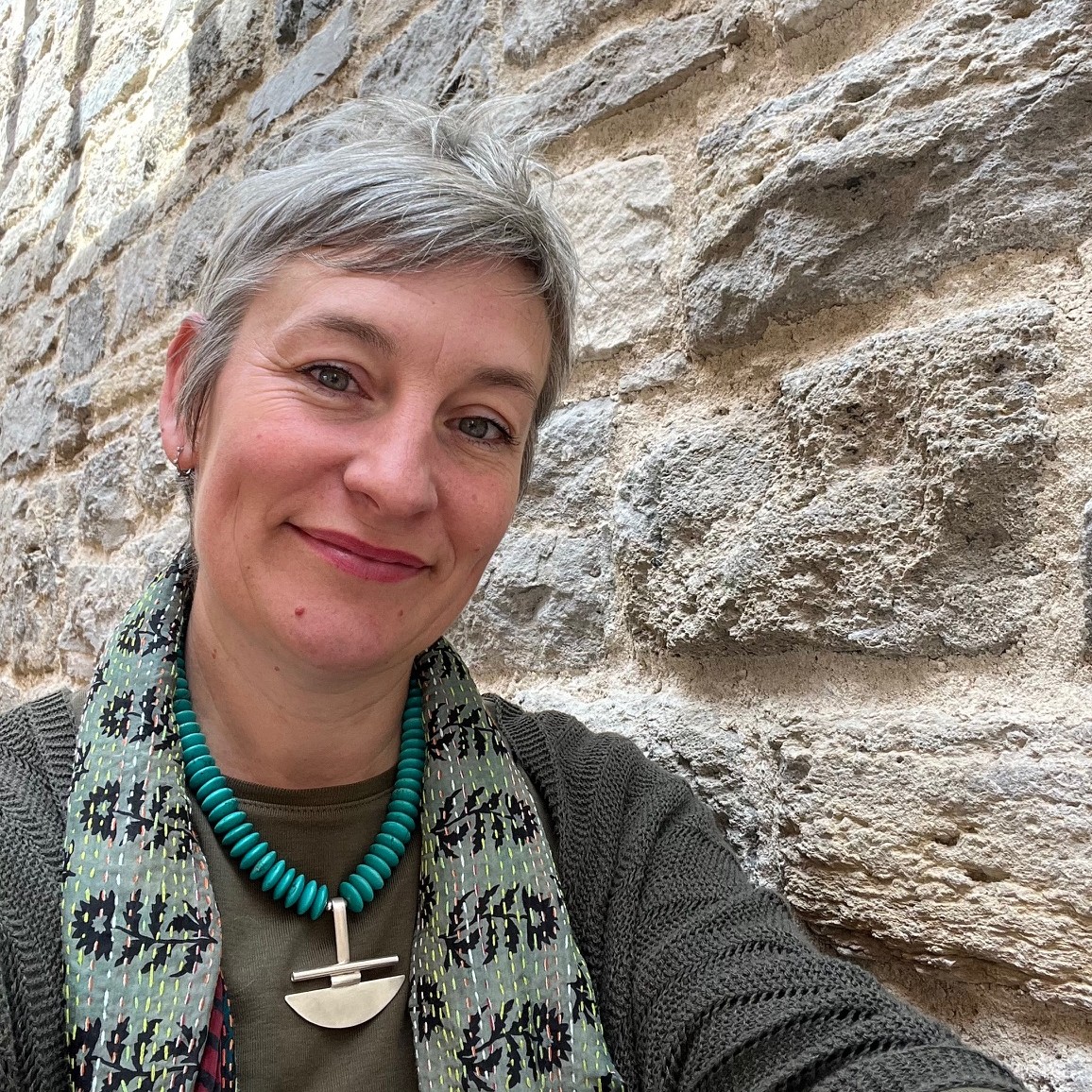
Nina Gronw - Lewis
Nina Gronw-Lewis is an artist whose practice centres on materials, slow processes, and a commitment to ethical production and craft. Her work reflects a deep respect for traditional techniques, reimagined through a sustainable lens. Recent projects explore the power of storytelling through textiles, highlighting how making can connect people, places, and ideas. Nina’s practice bridges heritage skills with contemporary thinking, aiming to inspire more conscious and collaborative approaches within the textile field.
Website: ninagronw-lewis.co.uk
Instagram: @ninagronwlewis
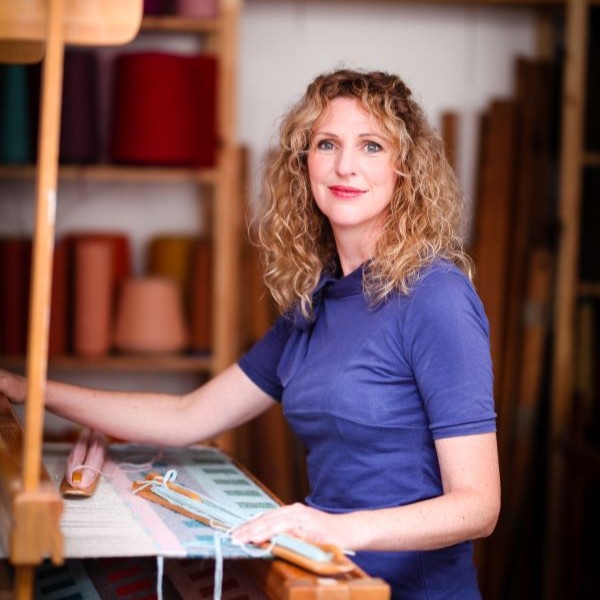
Angie Parker
Angie Parker weaves the traditional Norwegian technique of krokbragd to create contemporary artworks and rugs, and is the author of Krokbragd Contemporary Weaving with Colour. Her practice is led by her responses to the colours around her and the designs develop in a creative flow-state where each pattern determines the next. She is the owner of the contents of renowned British weavers Peter and Jason Collingwood’s studio including Peter Collingwood’s extensive book collection and a mountain of wool.
Website: angieparkertextiles.com
Instagram: @angieparkertextiles
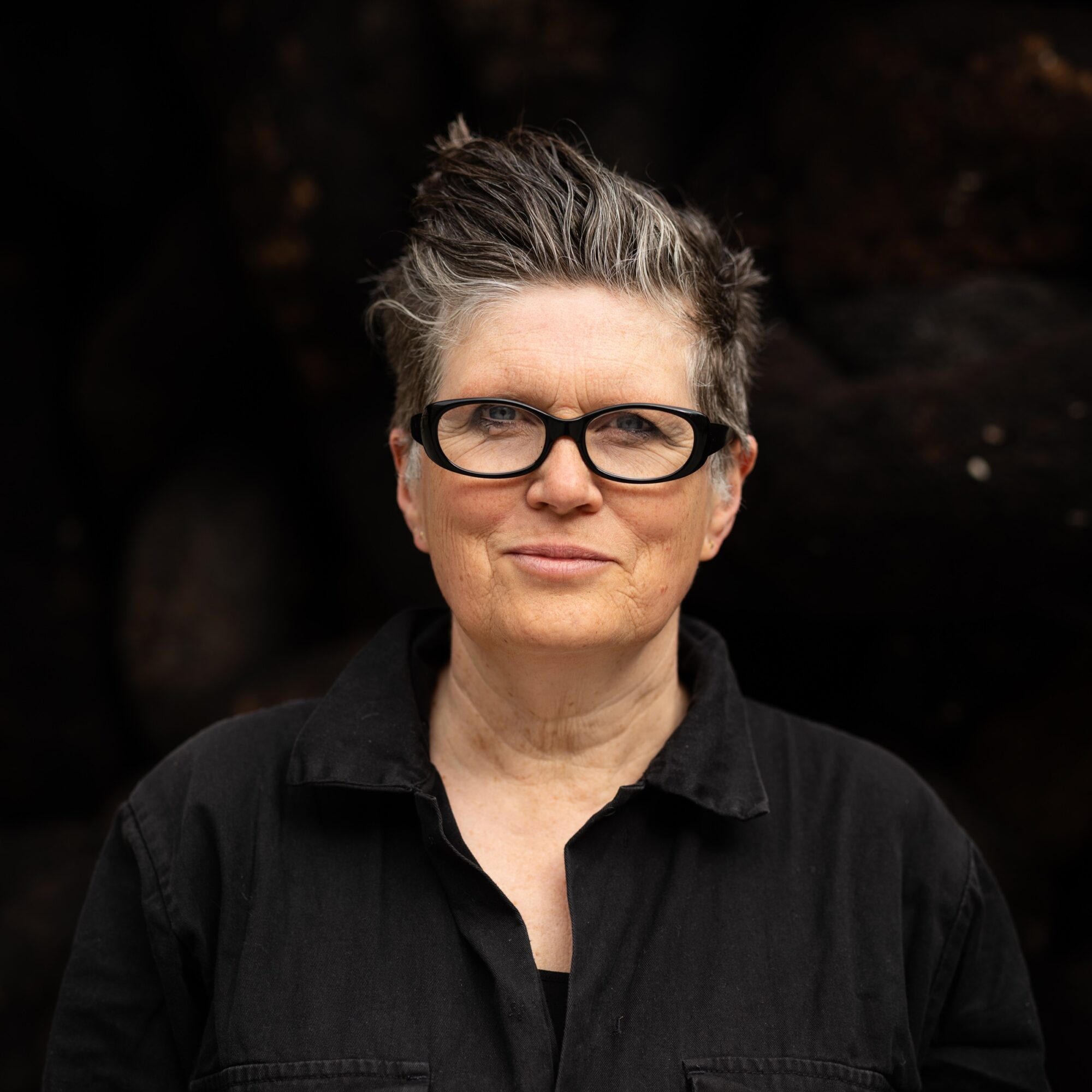
Nicola Turner
Turner is an artist known for creating large scale, visceral installations from wool and waste horsehair, often made in response to their surroundings. Last summer she gained attention for her site responsive installation The Meddling Fiend in the Courtyard of the Royal Academy, London, for the duration of the Summer Exhibition. In 2024 she was awarded the RWA Academy Award for her sculpture Klipp und Klapp. Turner has exhibited recently at Carvalho Park Gallery, New York; The Bomb Factory, London and Art Basel Unlimited. Turner is represented by Annely Juda and founded FORM-ica, an independent collective of artists in Bath.
Website: www.nicolaturner.art
Instagram: @nicolaturner.art
Becky Earley
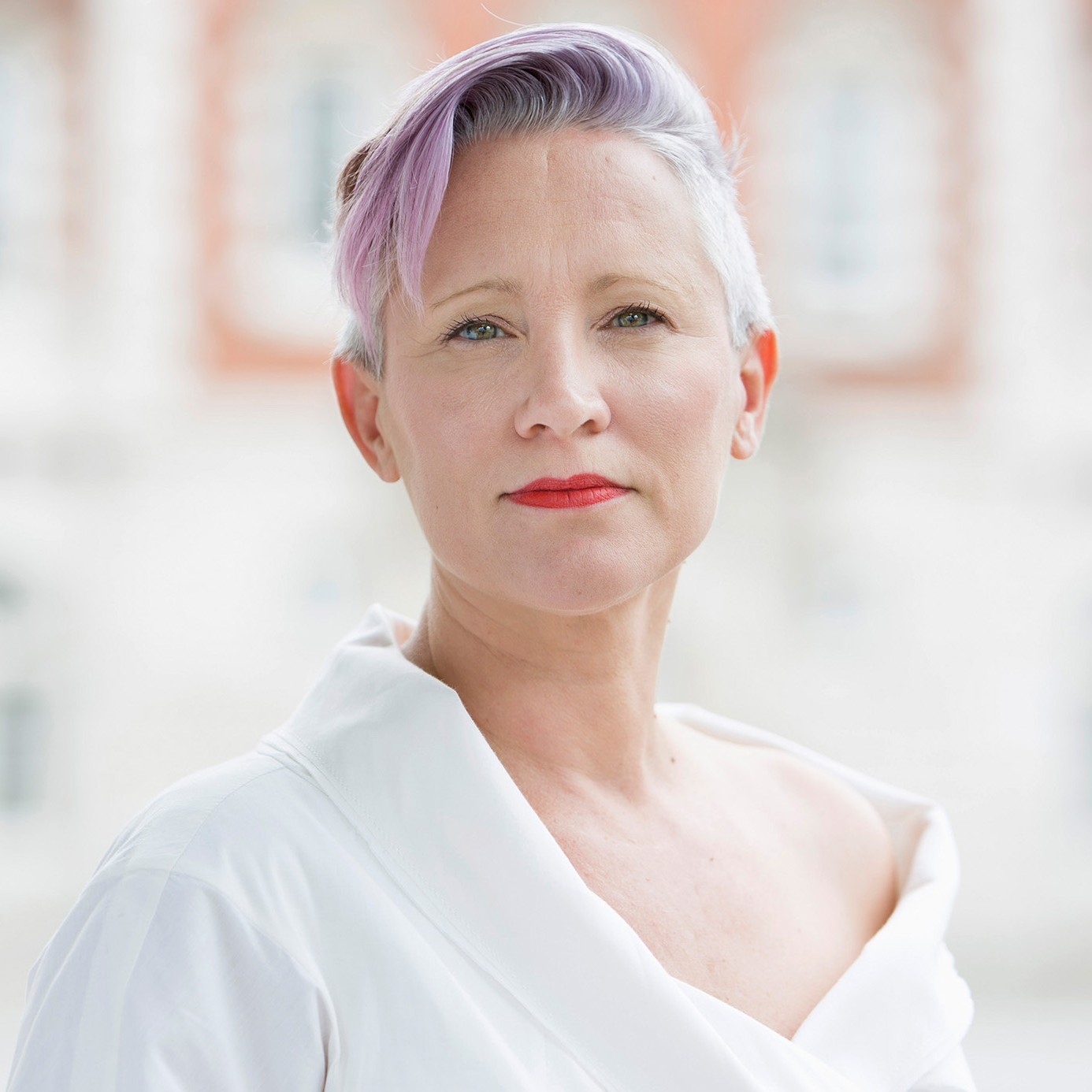
Becky is Professor of Circular Design Futures based at Chelsea College of Arts, University of the Arts London. Becky is a designer, researcher and educator whose work is concerned with the climate crisis. She set up her print design studio in London in 1995, and for the last 30 years has been making, exhibiting and curating new materials and approaches that explore novel systems and behaviours. In 2007 she was nominated as a Morgan Stanley Great Briton for her contribution to sustainable fashion textiles in the UK, after curating the Crafts Council’s Well Fashioned: Eco Style in the UK survey in 2005.
She has taught at UAL since 1996 and is currently Chair of Circular Design Futures. She is known as a pioneering research leader, having led three research groups between 1999-2022. In 2020 she co-founded World Circular Textiles Day 2050 to highlight advances being made in circular textile design and production.
Becky conducts her research by creating new materials, prototyping products or developing services; often in workshop contexts where she facilitates sessions using talks and tasks, supported by her suite of novel tools.
Becky is interested in different forms of intelligence and how we can use it as artists and designers, to support resilience for human life on earth. Becky’s work is committed to equity, diversity, inclusion and accessibility, and her portfolio of projects, processes and products reflect these concerns.
Talk 4 – 3pm
Professor Becky Earley is best known for her sustainable and circular textile design work. She founded her B.Earley studio in London in 1995 with help from the Crafts Council and the Princes Trust. In 1999 she began working in design research at UAL. In one of the first projects she explored natural indigo dye plants at the newly opened Eden Project in Cornwall (Spindigo). She went on to deliver multiple externally funded projects that pushed the boundaries of design and textile recycling over a ten-year period (Top 100, 5Ways, Worn Again 1999-2009).
Becky will be bringing materials and creative thinking tools to the event and share with the audience the research outcomes from her most recent research. She will present the current landscape of sustainable, circular and regenerative textiles, by sharing samples from Mistra Future Fashion, Trash-2-Cash and Herewear projects. She will explain how the remaking of used polyester shirts in her studio has helped her create new ideas and insights to feed back into the academic work. The talk will end with a review of World Circular Textiles Day 2050, a global campaign that Becky co-founded in 2020, which has since gained support from 350+ signatories from 35 countries.
